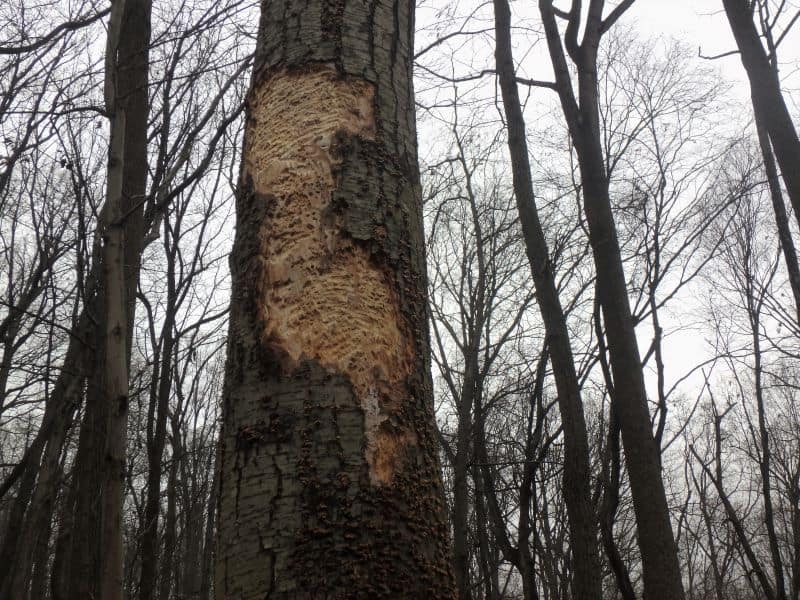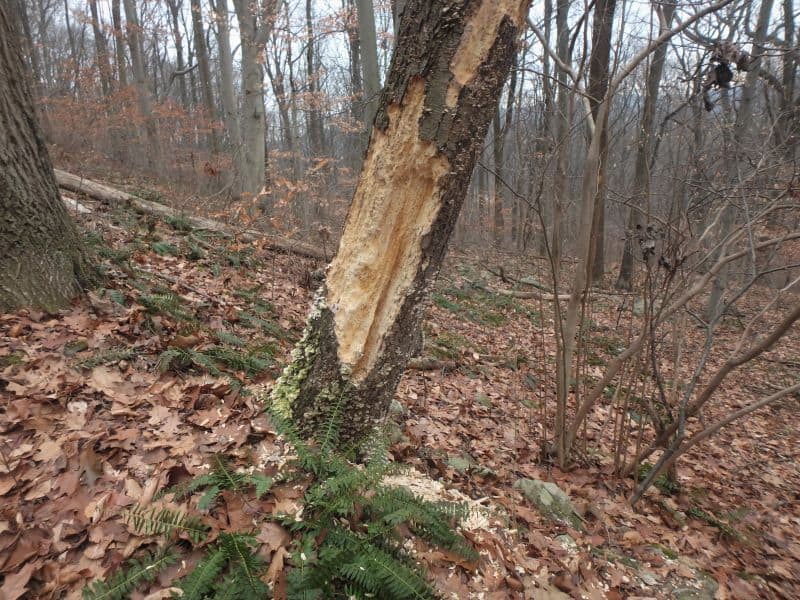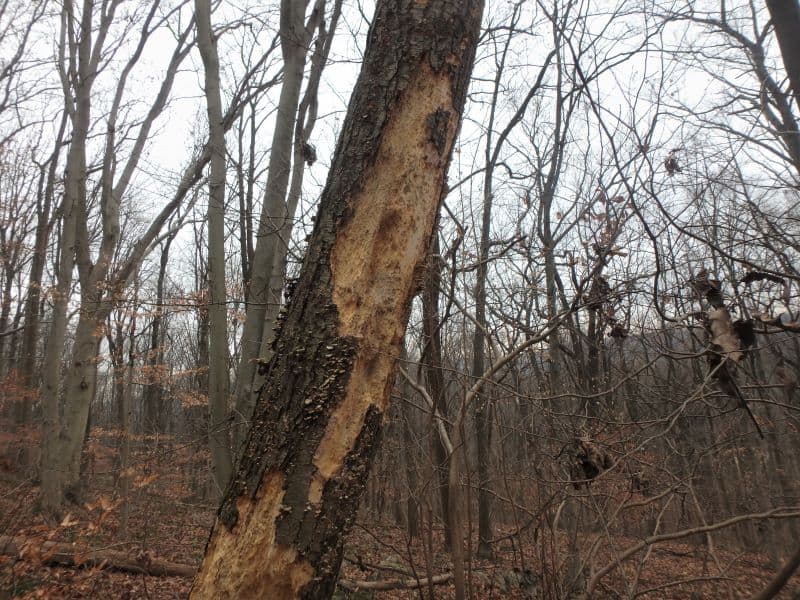Mariton: The Upside
by Tim Burris, Preserve Manager
I’m a bit of an optimist and a pragmatist. Afterall my parents belonged to the Greatest Generation. They survived the Great Depression and as teenagers experienced severe rationing during WWII, not to mention they both beat multiple cancers. Silver linings are my specialty. So, when I saw the woodpeckers working on dead Black Birch (Betula lenta) trees recently, I found the upside.

Photo by Tim Burris
Black Birches started dying at Mariton mysteriously a few years ago. These were seemingly healthy trees. With the help of Bureau of Forestry pathologists, I realized the trees were just succumbing to old age. It is another interesting part of forest succession that fascinates me.

Photo by Tim Burris
On the positive, these dying trees are attracting insects. The insects in turn are feeding woodpeckers during the winter. Which could provide a bumper crop of baby woodpeckers this spring.

Photo by Tim Burris. Note the obvious Pileated Woodpecker’s rectangular holes.
Yes, I’m bothered by the deaths of ash trees, hemlocks, and many other tree species because of our human carelessness. Still, I have to smile when I think of more Pileated Woodpeckers in Mariton’s woods.
